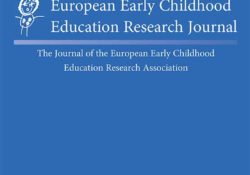tandfonline.com har udgivet en rapport under søgningen „Teacher Education Mathematics‟: ABSTRACT ABSTRACT Evidence suggests that the quality of teachers’ instructional practices can be improved when these are informed by relevant assessment data. Drawing on a sample of 1,300 primary school teachers in Ireland, this study examined the extent to which teachers use standardized test results for instructional purposes as well as the role of several factors in predicting this use. Specifically, the study analyzed data from a cross-sectional survey that gathered information about teachers’ use of, experiences with, and attitudes toward assessment data from standardized tests. After taking other teacher and school characteristics into consideration, the analysis revealed that teachers with more positive attitudes toward standardized tests and those who were often engaged in some form of professional development on… Continue Reading →
Like this:
Like Loading...
tandfonline.com har udgivet en rapport under søgningen „Teacher Education Mathematics‟: Abstract Educational disruption due to COVID-19 ushered in dramatically different learning realities in Ireland. Our research explored the experiences of children, young people and parents during the first period of ‘schooling at home’ (SAH) at the end of that academic year. An anonymous online survey, guided by social constructivist emphases, yielded responses from 2733 parents and 1189 students from primary and second-level schools. Substantial evidence emerged of parent-perceived and student-perceived negative psychosocial impacts of SAH on students. Further, our research clarified the exceptional stress experienced by parents in attempting to support SAH. A novel finding was student perceptions of having learned less during SAH, most likely due to significant declines in academic engagement. Recommendations for potential future periods of SAH… Continue Reading →
Like this:
Like Loading...
eric.ed.gov har udgivet: The 6th Annual Conference of the National Academy for the Integration of Research, Teaching and Learning (NAIRTL) and the 4th Biennial Threshold Concepts Conference was held at Trinity College Dublin, Ireland, on June 27-29, 2012. The NAIRTL is a collaborative initiative between University College Cork, Cork Institute of Technology, National University of Ireland Galway, Trinity College Dublin, and Waterford Institute of Technology. It is supported by the Higher Education Authority under the Strategic Innovation Fund. The proceedings from the 2012 NAIRTL conference bring together „key insights‟ on the topic of Threshold Concepts. This publication includes a selection of papers from the conference. The papers provide insights into how to apply the Threshold Concepts idea to gain a deeper understanding of how students learn, and also how to… Continue Reading →
Like this:
Like Loading...
tandfonline.com har udgivet en rapport under søgningen „Teacher Education Mathematics‟: ABSTRACT ABSTRACT School self-evaluation is a low-stakes policy recently mandated in Ireland and while schools are becoming more consistent in engaging in this internal mode of evaluation, their engagement has not been uniform. This paper provides new ways of thinking about, understanding, and explaining how school self-evaluation plays out in Irish schools. Subscribing to the view that policies are not simply implemented but enacted through the creative processes of interpretation and translation, this paper shows how school self-evaluation is performed in Irish schools in various ways by various people. We identify numerous policy actors in our qualitative data: narrators, entrepreneurs, outsiders, transactors, enthusiasts, translators, critics, and receivers. This assortment of actors helps to bring school self-evaluation to life but as… Continue Reading →
Like this:
Like Loading...
tandfonline.com har udgivet en rapport under søgningen „Teacher Education Mathematics‟: ABSTRACT ABSTRACT Educational policies increasingly emphasise early childhood science engagement. As key influencers in children’s early learning, parents (n = 85) attending a science workshop in three urban schools in Ireland were surveyed regarding their attitudes towards science. Seventy per cent of parents believed that science education should begin in the pre-school years, before the age of four. Despite high levels of education, at least half of the parents expressed some lack of confidence in talking about, and in doing science with, their young children. Parents who reported less confidence in doing science activities with their children also reported reduced frequency of activities for five out of the seven science learning opportunities listed. Mothers, compared to fathers, reported less confidence in doing… Continue Reading →
Like this:
Like Loading...



